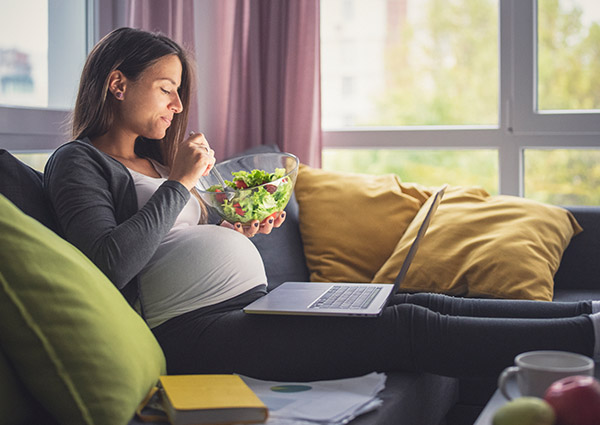
Tips for a Plant-Based Pregnancy
Pregnancy comes with many changes to the body, and it’s important for moms-to-be to know how to adapt to these changes to nurture baby’s growth and development. What you eat during pregnancy is also incredibly important for baby’s development. For those who are vegan, follow a plant-based diet or are looking to shift towards a healthier eating style, we’re here to let you know that it’s absolutely safe and possible to eat a plant-based diet during pregnancy, as long as you follow some simple guidelines.
Plant-based diets are associated with lower risks of heart disease, obesity, hypertension and diabetes. While many believe otherwise, it’s not necessary to consume animal-based products during pregnancy. Eating a variety of plant foods is a great way to receive the essential nutrients that keep you and baby healthy. Once you understand which nutrients you need and how much, you can easily maintain this healthful way of eating during pregnancy and postnatal if you’re breastfeeding.
Explore Plant Protein
Even for those not pregnant, the first question people often ask those who follow plant-based diets is, “How do you get your protein?” Numerous plant foods offer sufficient amounts of protein, including beans, legumes, tempeh, nuts and seeds. In pregnancy, protein positively affects baby’s development, especially the brain. Experts recommend consuming a minimum of 60 grams of protein per day while pregnant, which will account for about 25% of your calorie intake. A great way to achieve this is to try consuming at least one protein-rich item per meal or snack.
Consume More Calcium
Calcium helps build and strengthen baby’s rapidly growing bones, muscles and heart, and keeps mom’s muscles strong. While the recommend daily amount of calcium doesn’t increase during pregnancy, it’s easy to become calcium deficient since your body will use its own supply for your growing baby. Eat calcium-rich plant-based foods like dark, leafy vegetables, beans, almonds, tofu and soybeans.
Fuel with Fiber
Overall, a diet that’s rich in fiber is essential for pregnancy. It helps regulate blood pressure and is a great way to improve digestive health, which can slow down during pregnancy. Great sources of fiber include fruits, veggies, grains, nuts, legumes, whole-grain breads and cereals. Aim for 25 to 30 grams of fiber per day, and don’t forget to drink plenty of water to help move the fiber through your body.
Consider Supplements
There are some nutrients essential for pregnancy that are harder to get through plant-based foods such as iron, vitamin B12, omega-3 fatty acids and zinc. Consider having your healthcare provider or dietitian review your nutrient levels to determine if you need any supplements to compensate for your diet. Be sure to contact your healthcare provider before taking any supplements.




